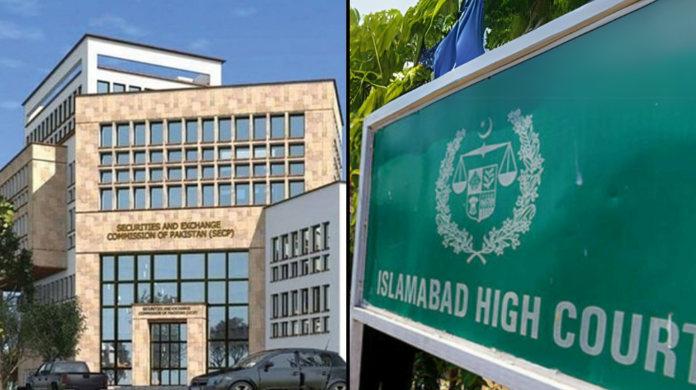ISLAMABAD — The Islamabad High Court (IHC) has upheld the jurisdiction of the Competition Commission of Pakistan (CCP) to investigate deceptive marketing practices and anti-competitive behavior in the telecom sector. The court dismissed petitions filed by Pakistan’s leading telecom operators, including Jazz, Telenor, Zong, Ufone, Warid, PTCL, and Wi-Tribe.
In a detailed 19-page judgment, Justice Inaam Ameen Minhas ruled that the CCP lawfully exercised its powers under the Competition Act 2010 by issuing show-cause notices to telecom operators over misleading advertising and additional charges imposed on prepaid customers.
The court clarified that the CCP’s mandate covers all sectors of the economy, including telecommunications, and operates alongside the Pakistan Telecommunication Authority (PTA). The telecom operators had challenged the CCP’s actions related to hidden fees on prepaid cards and misleading marketing of “unlimited internet packages,” which were found to be subject to fair usage policies.
The IHC rejected the argument that the PTA held exclusive authority over competition in the telecom sector, ruling that the CCP’s powers extend to regulating anti-competitive behavior, abuse of dominance, and deceptive marketing practices. The court noted that while the PTA regulates technical and operational aspects, the CCP addresses competition-related issues, including deceptive marketing.
The court also dismissed the petitions on procedural grounds, stating that the CCP’s notices were not adverse orders and that the petitioners had adequate remedies available through the Commission’s appellate bench and the Competition Appellate Tribunal.
The IHC’s ruling reinforces the CCP’s authority to investigate anti-competitive and deceptive practices in the telecom sector, dismissing all seven petitions as “not maintainable.”
Background
In December 2013, the Competition Commission of Pakistan (CCP) issued show-cause notices to telecom operators including Mobilink, Ufone, Telenor, Zong, and Warid for imposing additional charges on prepaid reloads, labeled as “service maintenance fees,” “administrative fees,” and “operational charges.”
These charges, ranging from 1% to 5%, were levied without providing specific services, prompting CCP to classify the practice as deceptive marketing under Section 10 of the Competition Act. Simultaneously, CCP issued an inquiry report in April 2014 against Wi-Tribe and other Internet Service Providers for promoting “unlimited internet” packages that were actually subject to fair usage limits, which could mislead consumers under Section 10(2)(b) of the Act.
For years, telecom companies successfully obtained stay orders, some dating back to 2014, which halted CCP’s investigations and enforcement actions. However, the recent IHC ruling has lifted these legal barriers, enabling the CCP to resume its inquiries into these deceptive marketing practices.




